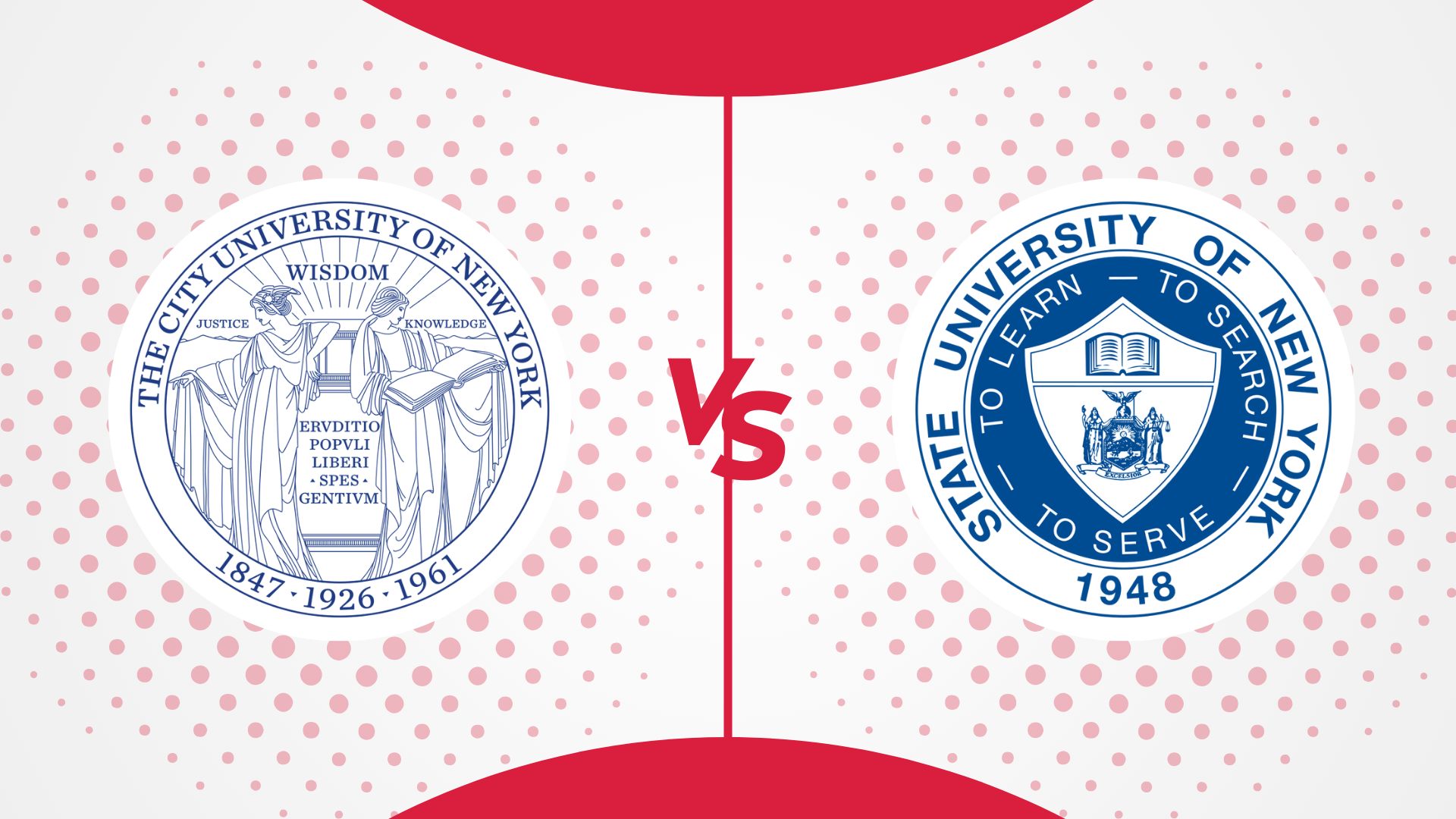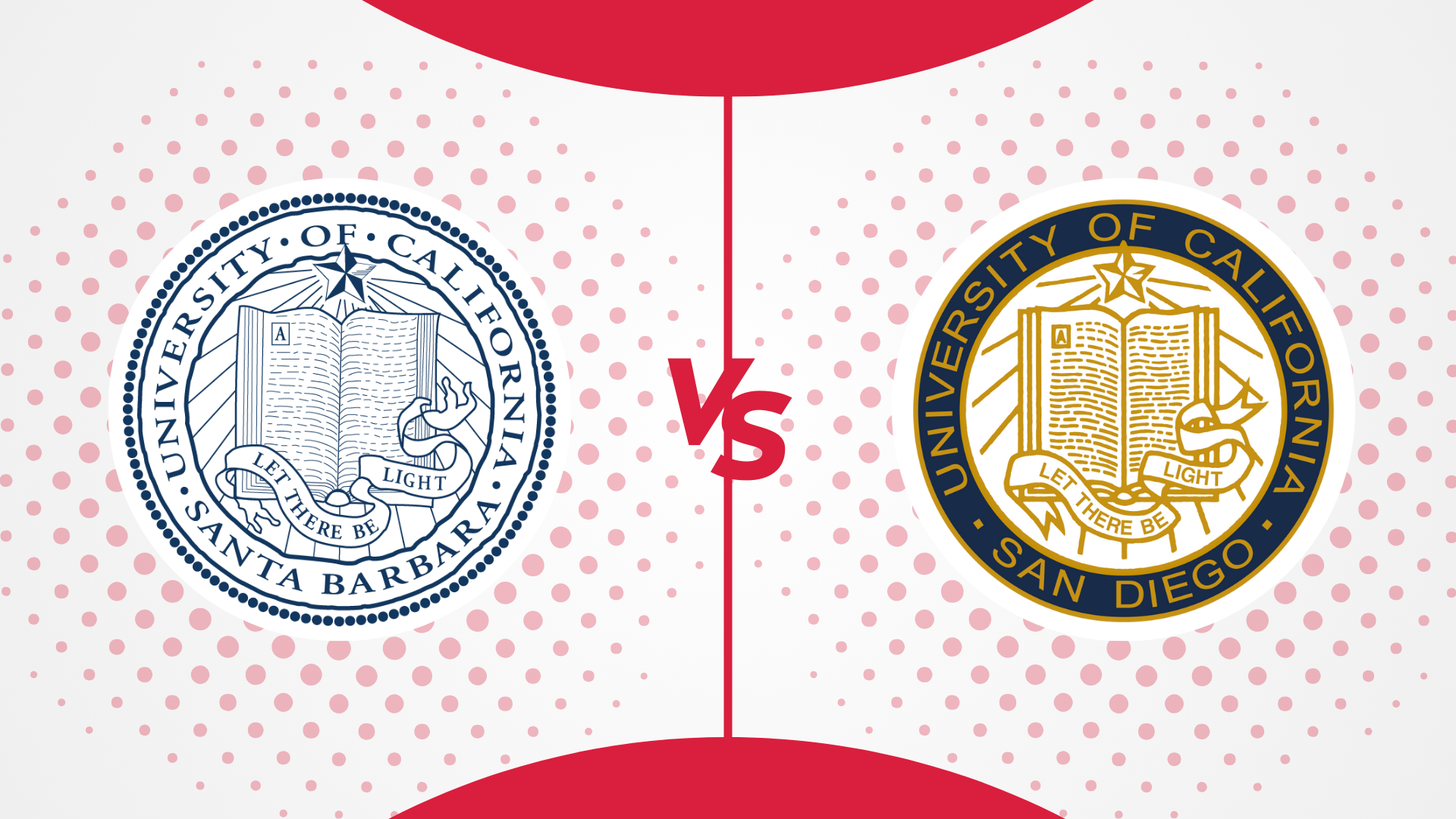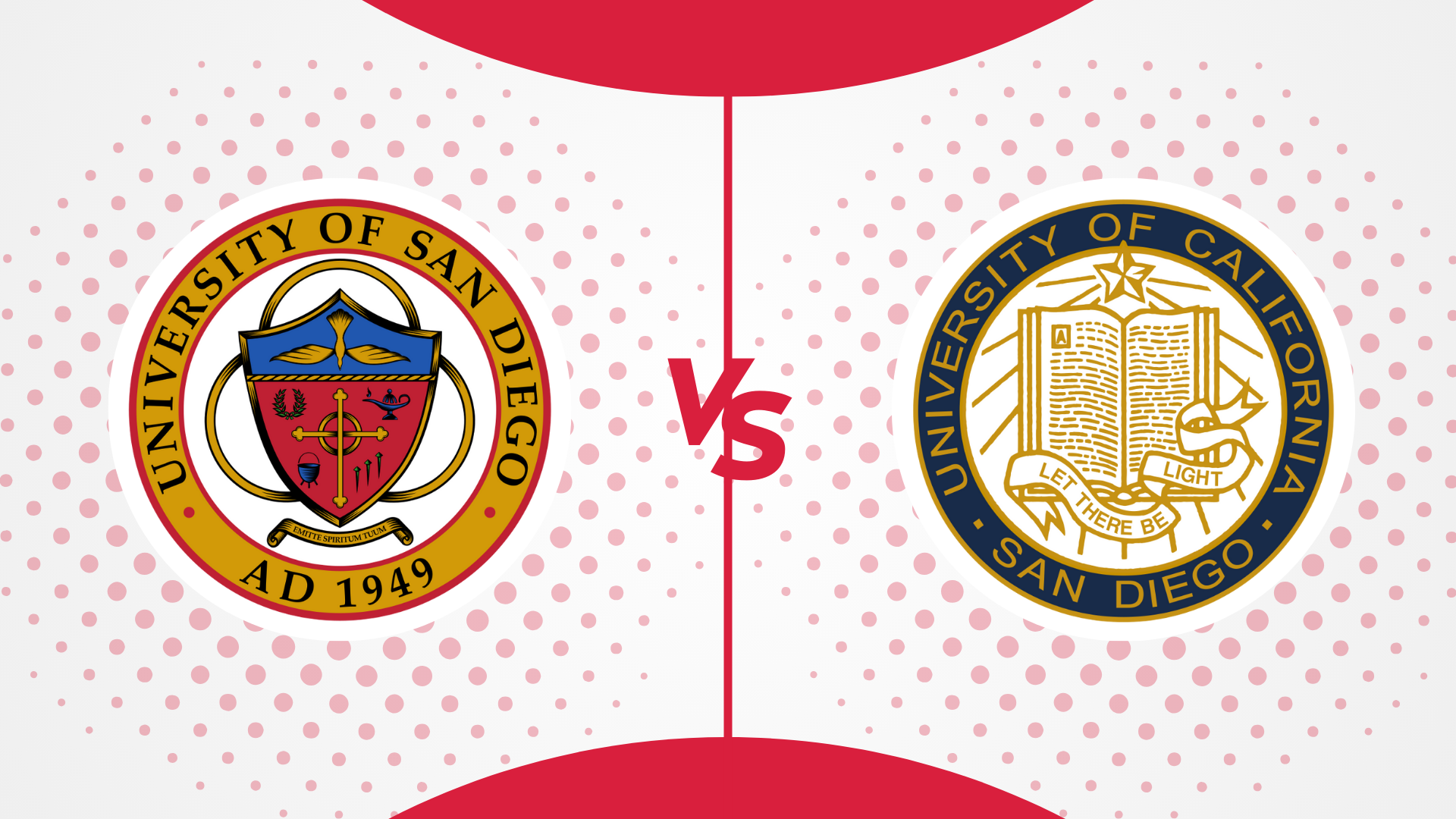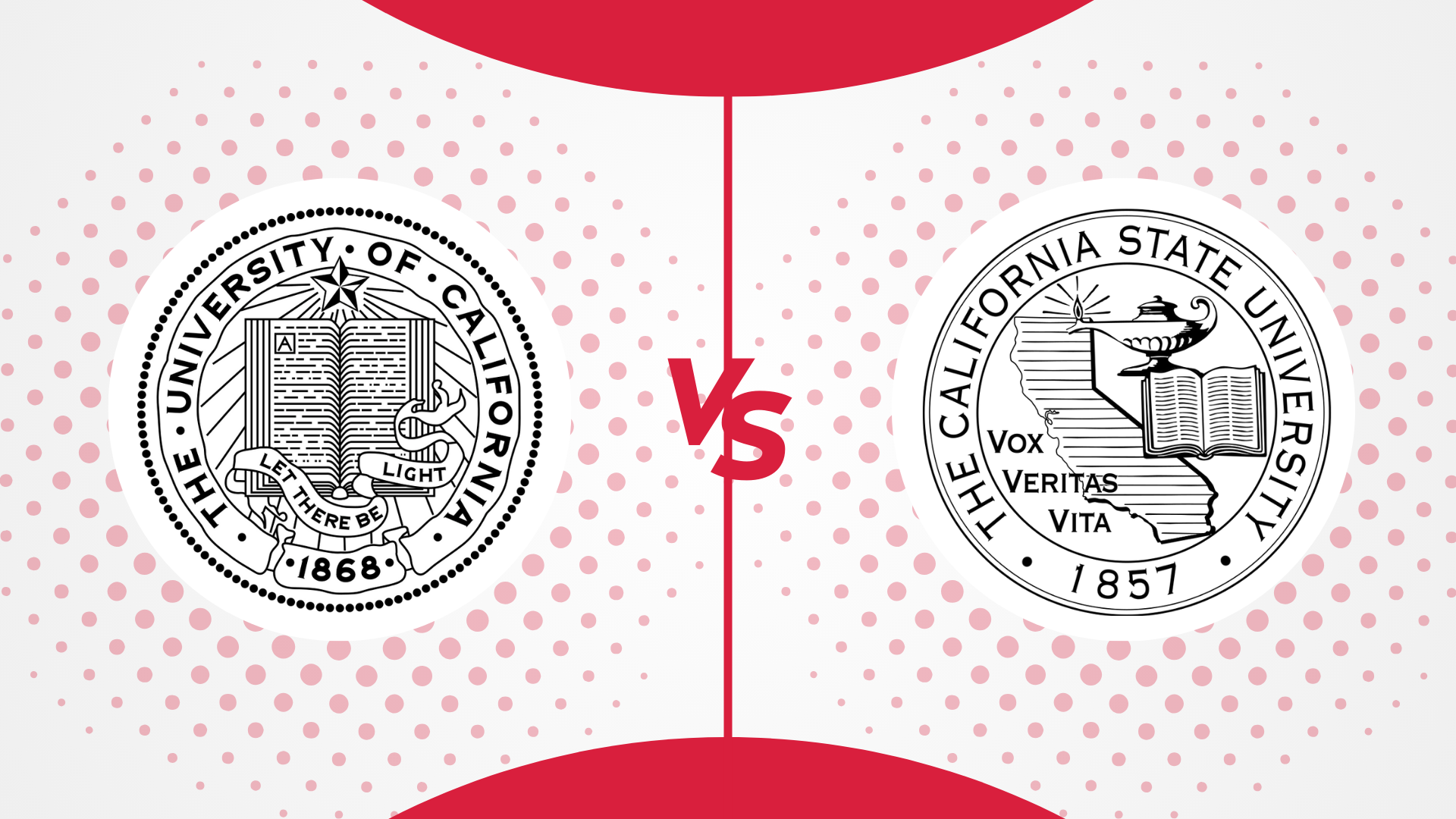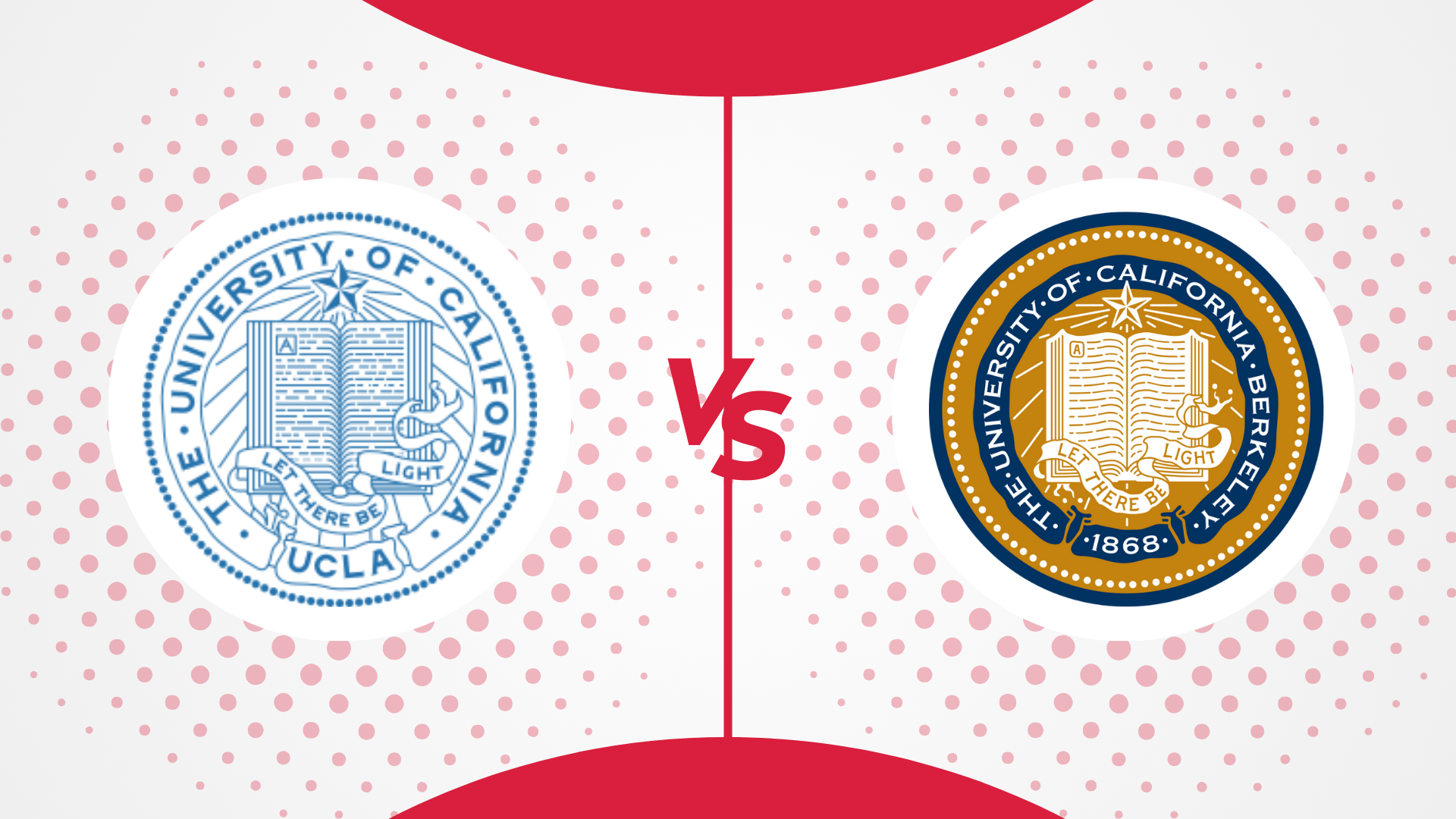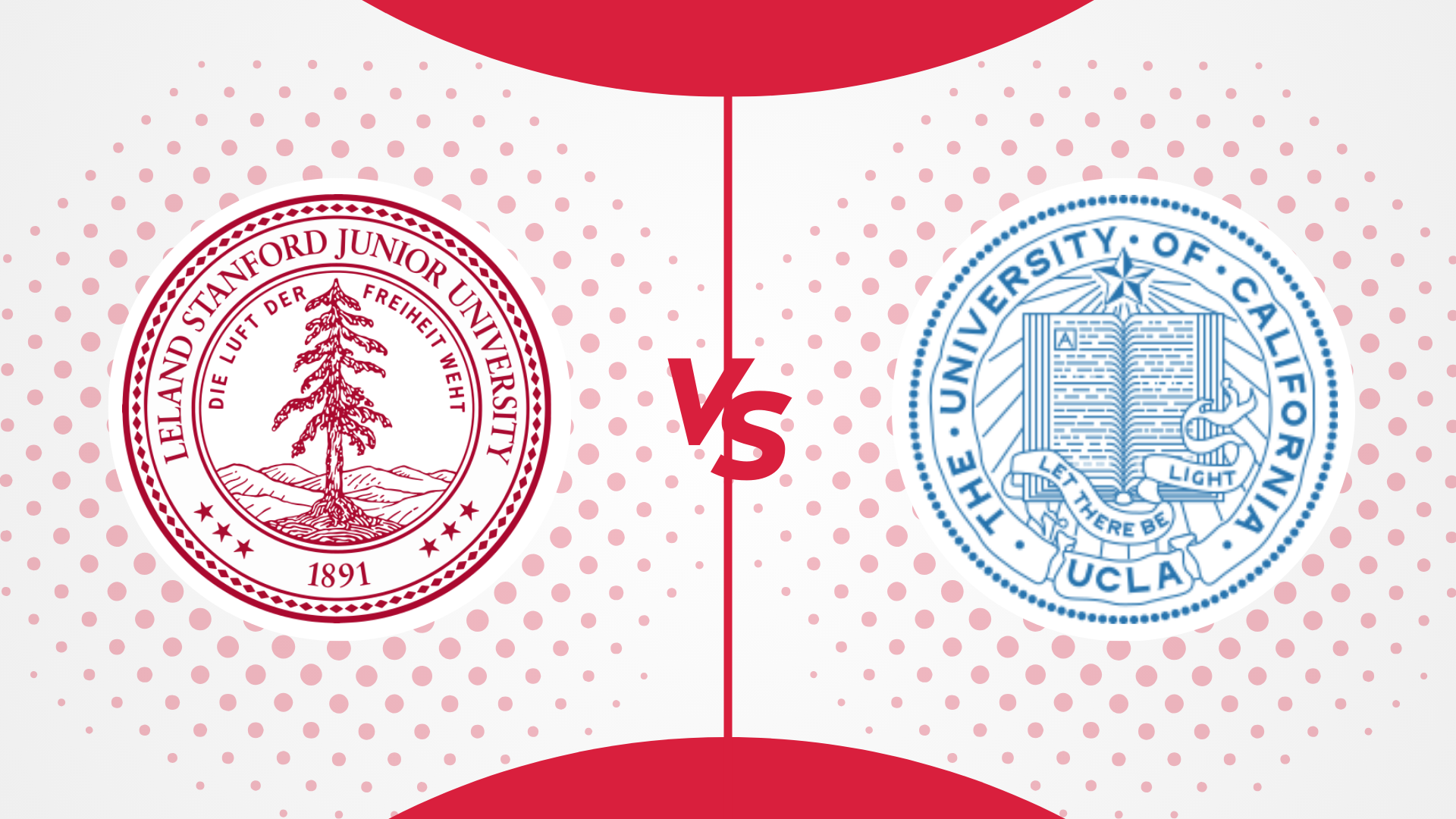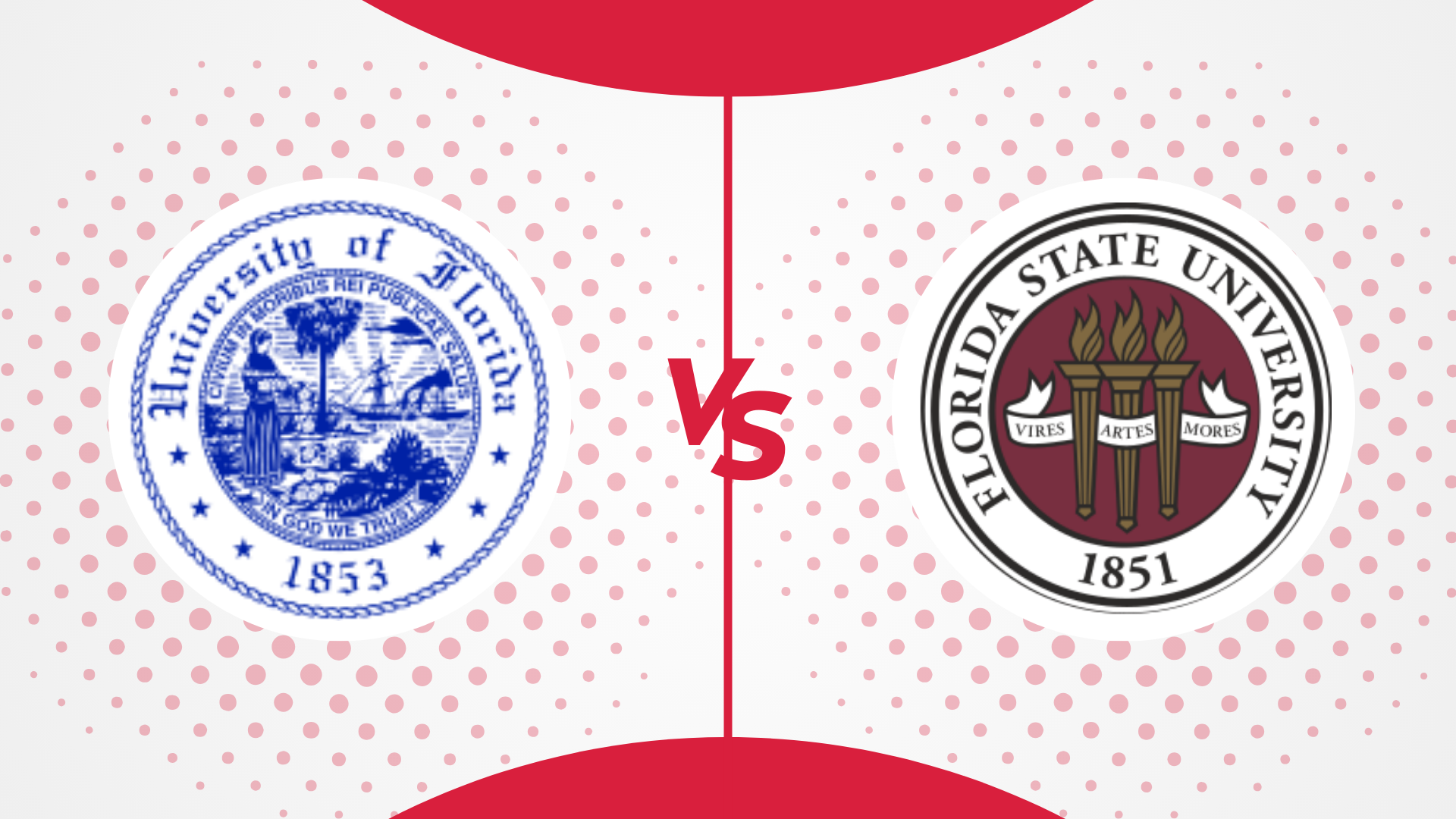If you’re confused by the Glasgow University vs Durham University question, then this is for you. They are both among the best universities in the United Kingdom, offering a comprehensive range of subjects to choose from. Their history and legacy stand as a testimony to their excellence in varied areas of study, cutting-edge facilities, and world-class opportunities for academics and research.
This article provides an in-depth comparison of Glasgow vs Durham across various parameters so that you can make an informed decision about a school that is best suited for your needs. Keep reading to find out more.
Overview of Durham and Glasgow

In comparison, there are many differences between Durham and the University of Glasgow that are explained in detail through the course of the article. To summarise the key aspects –
- While both have a longstanding history and legacy, Glasgow is one of the four ancient universities in Scotland, established in 1451 while Durham was set up in the 1800s.
- Durham has a better reputation for quantitative subjects while Glasgow is known for medicine, and other STEM programs.
- Durham ranks marginally higher than Glasgow according to most metrics.
- An undergraduate degree can be completed in 3 years in England, Wales, and Northern Ireland (and therefore in Durham) while it takes 4 years to complete in the University of Glasgow.
- The University of Glasgow divides its fee categories into three – Scotland, Rest of UK, and International. Scottish students get maximum subsidy, paying only about £2,000 per year, while the students from the rest of the UK pay around £9,250. Durham students are categorised only into UK and international.
Brief History and Background
Durham University
A collegiate public research university in Durham, England, Durham University is the third oldest university in England, after Oxford and Cambridge. It was founded in 1832, close to the northern border of England, near Newcastle. As a collegiate university, Durham divides its functions between the faculties and departments that handle academics and research and the colleges that provide residential arrangements and oversee the overall welfare of their students.
Durham is one of the premier universities in the UK, known for its programs in law, history, philosophy, economics, and other social sciences. While the university does have great science and engineering programs, its legacy is built primarily based on its qualitative disciplines. Durham ranks 6th in the country and 89th in the world according to the Guardian League tables and QS WUR, respectively. More than Glasgow, Durham is often compared to Warwick.
University of Glasgow
A public research university in Glasgow, Scotland, the University of Glasgow was set up in 1451 by a papal bull. This makes it one of the four ancient universities in Scotland, along with the University of St Andrews, Aberdeen and Edinburgh. It is the fourth oldest university in the English-speaking world, after the University of Oxford, the University of Cambridge, and the University of St Andrews.
Today, home to over 30,000 students, the University of Glasgow is divided into 4 main academic colleges, which are further divided into schools and departments. Its legacy and history give it a global reputation, especially in physiology, anatomy, life sciences, chemistry, bioengineering, and economics, among other disciplines. Glasgow ranks 14th in the country and 78th worldwide according to the Guardian League tables and QS WUR, respectively.
Key Statistics and Rankings
Here is a table comparing the key stats and ranks when it comes to Glasgow vs Durham University.
| Durham | Glasgow | |
| Campus | Durham, England | Glasgow, Scotland |
| Ownership | Public Research University | Public Research University |
| QS World University Rank 2025 | 89 | 78 |
| Times Higher Education Rank 2025 | 172 | 87 |
| Guardian National Rank 2025 | 6 | 14 |
| Undergraduate Student Body | 17,765 | 21,851 |
| Graduate Student Body | 4,600 | 11,907 |
| % of International Enrollment | ~ 30.8% | ~ 38.6% |
| Average Undergrad Acceptance Rate (Source: UCAS) | Around 13% | Around 22% for international students |
| Student-to-Faculty Ratio | 13:1 | 14.4:1 |
| Number of Undergraduate Programs | 200+ | 700+ degrees in over 130 disciplines |
| Number of Graduate Programs | 100+ | 300+ |
| Number of Athletic Teams | 550 teams across 18 sports | 50+ sports clubs with over 5,000 members |
| Number of Clubs and Student Organizations | 200+ | 300+ |
| School Colour | Palatinate Purple | University Blue |
Durham University vs University of Glasgow: Academic Comparison

Academics is one of the key areas of comparison for a prospective student looking at Glasgow vs Durham. While there can be any number of parameters that can quantify these two universities and their departments, it is important to anlayse their undergraduate and graduate courses, choices and flexibility, ranking, degrees and class sizes, academic calendars, research facilities and budgets, and other factors based on what is best suited for your career goals.
That said, while Durham ranks marginally higher than Glasgow according to most metrics, they are fairly equally prestigious, especially considering the University of Glasgow’s reputation as one of the four ancient universities of Scotland. Let us take a closer look at the courses and degrees in both these UK top universities.
Undergraduate Programs
Program Options and Focus Areas: Both universities are renowned as outstanding centres of both teaching and research. As public universities, both Durham and Glasgow are funded by the state and have various departments that offer a wide range of programs. Durham offers over 200+ undergraduate programs, while Glasgow has over 700 programs to choose from across a range of disciplines that include STEM, social sciences, business, management, arts, and the humanities.
The choice of major is made while applying to the university, both in the case of Durham and Glasgow. This is typical of most UK universities, unlike the United States, where majors are typically declared in the sophomore year. Some universities allow you to switch majors depending on seat availability, but the process is akin to reapplying to a new program.
Reputation: Durham has a global reputation for most qualitative subjects, such as philosophy, history, English literature, philosophy, anthropology, psychology and others. In comparison, Glasgow is one of the best universities for the study of anatomy, life sciences and medicine, law, chemistry, computer science, nursing, and sports-related subjects.
According to the Guardian league table, Durham is ranked 6th in the country, while Glasgow is ranked 14th. Globally, Durham is ranked 89th, while Glasgow is ranked 78th (QS WUR 2025).
Course Duration: One of the key differences when it comes to Durham University vs the University of Glasgow is the time it takes to complete an undergraduate degree. In the United Kingdom, a typical BA/ BSc degree can be completed in three years in England, Wales and Northern Ireland. However, universities in Scotland, including the University of Edinburgh and Glasgow, function like US universities, wherein it takes 4 years to complete a bachelor’s degree.
Core Curriculum: Durham and the University of Glasgow, unlike universities in the United States, do not include a General Education or Core Curriculum component. The general assumption is that students/applicants have a basic, functional understanding of the foundations before enrolling at the university. If unprepared, students in the United Kingdom typically apply for a foundation year before pursuing a three-year bachelor’s degree.
Degrees Offered: At the undergraduate level, Durham typically offers BA or BSc (Bachelor of Arts or Bachelor of Science) degrees, depending on the course. At Glasgow (and the other three ancient universities in Scotland), an Honours level undergraduate degree in the Arts is called a Master of Arts (MA). It should not be confused with the Master of Arts offered by some universities in England, which refers to a postgraduate qualification. At the postgraduate level, most programs result in an MSc degree at Glasgow.
Standardised Test Scores and Other Admission Criteria: One of the significant advantages for an undergraduate student applying to study in UK universities, be it The University of Glasgow, Durham University or any other school, is the University and Colleges Admission Services, also known as UCAS. As a prospective applicant, you can log in to the UCAS website and apply to five different UK universities with only one application.
Both universities’ admission criteria for most courses are GCSE (UK High School) scores, A levels, or IB Scores; however, they might have specific requirements for certain courses. Both these UK universities do not compulsorily require standardised tests. However, SAT or ACT scores are recognised and can be used to meet entry requirements. American students, however, are required to submit SAT/ ACT scores.
International students must also demonstrate English language proficiency by taking the IELTS, TOEFL, or other accepted tests. The minimum required score varies depending on the program at each university.
Your essay, statement of purpose, and letters of recommendation are essential components of your application and your academic qualifications.
Class Size: While the class sizes can vary quite significantly across departments, Durham has a student to faculty ratio of about 13:1. Glasgow also maintains a similar range with an SSR of about 14:1. That said, the number of students per class/ lecture/ seminar can vary widely, depending on the program.
Top Majors:
| Durham University | University of Glasgow |
|
|
Graduate Programs
Graduate Program Options: Before diving into the options and analysis for Master’s programs available at Glasgow University and Durham, students should make note of three critical points.
- First, most master’s degrees in England, Scotland, Wales, and Northern Ireland are for one year, unlike the two-year programs in most other countries. A typical postgraduate degree in the University of Glasgow takes only a year to complete, even though the undergrad degrees take an additional year.
- Second, while researching your degree, please consider whether it is a taught master’s or a research master’s program. As the name suggests, taught master’s programs (MA/ MSc) are primarily composed of coursework, lectures, and exams, with some research work. Conversely, MRes comprises minimal coursework with a heavy focus on a single research project. To put it better, MRes can be considered a mini PhD program.
- As mentioned earlier while discussing undergraduate degrees, an “MA” from Glasgow University is an honours bachelor’s degree. Most postgraduate degrees across disciplines are awarded an MSc or an equivalent.
That said, Durham University has over 100 taught and research master’s courses, while Glasgow has over 300 graduate programs. By many metrics, Durham has the higher ranking, especially on the global level, but both are regarded as top universities offering a wide range of taught and research degrees.
Glasgow is known for its master’s programs in aerospace engineering, biotechnology and management, business analytics and data science, international finance, medicine, economics, and computer science specialisations, among other disciplines, while Durham is better suited for law, public policy, education, and social sciences. The Durham Law School ranks 8th in the UK and 48th in the world when it comes to law and legal studies. It is also important to note that when it comes to law, the Glasgow Law School offers programs in Scots law, Common law, and international law.
In terms of the graduate student body, Durham is much smaller than Glasgow. While Durham has about 4,600 grad students, the University of Glasgow’s graduate population is almost thrice the size of its English competitor.
College Admissions: Both universities are fairly evenly competitive when it comes to admissions. However, the acceptance rate is indicative of undergraduate admissions. At the master’s or doctoral level, the number varies significantly across departments. The general minimum admissions criteria in both universities for a master’s program is
- An upper second-class honours degree from a recognised university,
- Personal essays, letters of recommendation, audition tapes and portfolios (if required)
- standardised English language tests for international students.
Standardised graduate tests such as GMAT or GRE scores are not mandatory in both universities unless specifically asked for by the department/ program that you are applying to. Some master’s programs or professional programs might also require you to have some work experience. For instance, the MBA at Glasgow Business School requires all its applicants to have a minimum 3 years of manager level experience before applying.
Top Graduate Degrees:
| Durham | Glasgow |
|
|
Overall and Subject Ranking
Here are two tables that compare Durham University vs Glasgow based on overall rankings and individual subject metrics.
| Ranking Source | Durham University | University of Glasgow |
| U.S. News Global Universities 2025 | 309 | 61 |
| Times Higher Education WUR 2025 | 172 | 87 |
| QS World University Ranking 2025 | 89 | 78 |
| Guardian UK National Ranking 2025 | 6 | 14 |
| Global Subject Ranking (Source: QS Subject Rank 2024) | |
| Durham | Glasgow |
|
|
While rankings provide valuable insight, they shouldn’t be the sole deciding factor in choosing a university. Glasgow and Durham have unique strengths that cater to different academic and personal needs.
Constituent Schools
Durham University is constituted by 27 academic departments that are divided into
- Durham Business School
- Faculty of Arts and Humanities
- Faculty of Sciences
- Faculty of Social Sciences and Health
Note: Durham no longer has a medical school. The original Durham University School of Medicine, Pharmacy and Health was transferred to Newcastle University in 2017. However, Durham University continues to offer health-related programs at the bachelor’s and master’s level. Their MA in Medical Humanities is a highly sought-after program for those interested in the non-clinical side of the health industry.
The University of Glasgow is divided into 4 colleges, which are further categorised into 16 different schools and numerous academic departments.
- College of Arts & Humanities
- College of Medical, Veterinary & Life Sciences
- College of Science & Engineering
- College of Social Sciences
Research Opportunities
Both Durham University and the University of Glasgow are members of the prestigious Russell Group of Institutions, world-renowned for their spirit of innovation and discovery. Durham University is home to over 80 research centres and institutes covering a wide range of disciplines including the Wolfson Research Institute for Health and Wellbeing, Institute for Data Science, Centre for Commercial and Corporate Law, Durham Centre for Bioimaging Technology among others. You can access the full list here. The university is also world-renowned for its research in the areas of law, sustainability, archaeology, business, and neuroscience.
The University of Glasgow has also been a pioneer when it comes to research and innovation. Here are some of the most notable research and discoveries from the University of Glasgow –
- Lord Kelvin proposed an absolute scale of temperature, now called the Kelvin Scale, in 1848.
- Joseph Lister published research on the use of antiseptic in surgery in 1867.
- Sir William Ramsay discovered helium in 1895, followed by krypton, neon, and xenon in 1898.
- John Logie Baird invented the television in 1926.
- Ian Donald showed the first ultrasound image of a foetus in 1958.
- Keith Muir led the first clinical trial of stem cell therapy for stroke patients in 2010.
- Sheila Rowan led the Glasgow team that first detected gravitational waves in 2015.
The university continues to build on this legacy with over 200 focused and interdisciplinary research groups that make research accessible to all students from the undergraduate level. The value of the University’s research activities stood at £1.8 billion in 2021.
Key Dates for Application
In this section, we will be looking at the key dates for application and admission into undergraduate and master’s programs to get a sense of the timeline. It is also recommended that you verify with the specific department / school that you are applying to, just to ensure they do not follow a different cycle.
| Important Dates | Durham | Glasgow |
| UCAS Applications Opens on | 3 September 2024 | 3 September 2024 |
| UCAS Application Deadline | 29 January 2025 | 29 January 2025 |
| Course Begins | August/ September 2025 | August/ September 2025 |
| Master’s Application Deadline | Rolling admissions. Students who require a visa are expected to apply by July | Multiple rounds UK Deadline: 22 Aug 2025 International: Dec 2025 |
| Decision Posted in | 6 – 8 weeks of receiving the application | UG: March – May 2025 PG: in 4 – 6 weeks |
| Deadline to accept offer of admission | Mid-August | Typically within 4 weeks of receiving the offer |
| Average Acceptance Rate | ~ 13% | ~ 22% for international students |
Some important points to be considered when applying to Durham or Glasgow:
- Unlike American universities, most UK universities do not have Early Action or Early Admission Decision pathways.
- Glasgow and Durham, like most UK universities, have rolling admissions, especially for their graduate programs. Applications are accepted throughout the year, and it is therefore recommended that aspirants apply at the earliest.
- All undergraduate applications for both Durham and Glasgow go through University and Colleges Admissions Services or UCAS. The advantage is that you can apply for up to five colleges with just one application. The application fee is about £30.
- There is no common application portal for graduate level applications. They can be applied to directly, from the university/ department websites.
- Programs like medicine, veterinary sciences, dentistry, and nursing typically have earlier deadlines, as early as in October, when compared to other courses.
Academic Calendar
Durham follows a trimester system where the academic year is divided into three terms. The Autumn Term runs from October to December, the Spring from January to March and the Summer from April to June. At Durham, these terms are named Michaelmas, Epiphany, and Easter Terms, respectively.
The University of Glasgow divides its academic year into semesters. The first semester typically extends from September to December and the second January to April/ May. This is not to be confused with Glasgow Caledonian University which uses trimesters.
Glasgow vs Durham: Campus Life and Environment

In the debate of the University of Glasgow vs Durham University, academics alone cannot be the deciding factor. From their campus size to the culture, Durham and Glasgow offer varied experiences to their students. Let us take a look at some of the other factors that can make a prospective student prefer Glasgow to Durham or the other way around.
Location
One of the key factors that can help you decide is the location. Durham is located near the northern border of England, closer to Newcastle. It is closer to Edinburgh (about 140 miles) than it is to London. It is a college town and is also a UNESCO World Heritage Site.
Glasgow is a university town in Scotland, about 40 miles from the capital city of Edinburgh. In addition to the University of Glasgow, it is also home to the University of Strathclyde, Glasgow Caledonian University, and Glasgow School of Art. One of the top student cities in the UK and Europe, it is known for its vibrant music and arts scene, night life, and parks.
If you are comparing cost of living, Glasgow is cheaper than Durham when it comes to rent but is more expensive when it comes to food, transport and other utilities. But both these cities are significantly cheaper when compared to living in London.
Campus Size and Facilities
The Durham campus spans about 640 acres and accommodates the academic and research facilities and their 17 residential colleges. The campus also includes the 11th-century Durham Castle and the UNESCO World Heritage Site. The Queen’s Campus in Stockton-on-Tees is also part of Durham University and houses the Durham University International Study Centre. A mix of tradition, legacy and modernity, the campus provides a range of facilities, including libraries, gyms, sports and creation centres, housing, and dining halls in all its colleges.
The University of Glasgow is over 400 acres spread across three main campuses, not including its 4 transnational campuses in Singapore and China.
1. Gilmorehill Campus – Based in the West End of Glasgow, Gilmorehill is home to the majority of the university’s teaching and research facilities. It also houses the iconic bell tower, extensive sports facilities, two student unions, a museum and art gallery, an enormous library over 12 floors, and more than 300 clubs and societies.
2. Garscube Campus – Located about 4 miles from the main Gilmorehill campus, the Garscube campus is home to the School of Veterinary Medicine, the Small Animal Hospital, the Glasgow Equine Hospital & Practice, the Wolfson Wohl Cancer Research Centre, and the Beatson Institute for Cancer Research. It is also home to the Wolfson Hall of Residence and the Garscube Sports Complex.
3. Dumfries Campus – Located about 80 miles from the other two campuses, Dumfries is home to the School of Social & Environmental Sustainability.
Student Activities and Organizations
Even though most UK universities are less athletically inclined than the USA, Durham has an immense culture of sports and athletics. Over 75% of the student body is engaged in some sport or physical activity and the university enables 700 teams to participate in 18 different sports. It is Britain’s top team sports university and has invested over £47 million in athletic facilities since 2012. The university is also globally renowned for its Department of Sport and Exercise Sciences. In addition to sports, the university also allows over 200 clubs and organisations for their students to explore their passions beyond academics.
Similarly, the University of Glasgow houses over 50 sports clubs with over 5,000 members across its three campuses. The students union also manages over 300 clubs and student organisations to cater to varied extracurricular interests of students.
Housing and Accommodation
The University of Durham is a collegiate university comprising 17 residential colleges across the campus that house undergraduates, postgraduate students, and even some members of faculty. These colleges are at the heart of Durham campus life. They help build communities, lifelong friendships and even professional networks. Each college is composed of a diverse group of staff and students from different disciplines.
About 40% of Durham students are accommodated on campus, while the university aims to increase it to about 55% by 2026-27. First-year undergraduates are guaranteed an offer of university accommodation. Even students who choose to live off campus are still assigned colleges. They can access all other amenities a college offers, except the housing facilities.
University of Glasgow students are not divided into residential colleges like those in Durham or Oxbridge universities. Academic departments are categorised into schools and colleges at the University of Glasgow. When it comes to residences, the university manages, either on its own or in partnership with other services, about 15 apartments/ flats/ residence halls that can accommodate around 5,000 students. Most rooms are typically shared between 2 students, with larger houses accommodating as many as 5 students. The university also has access to a minimal number of family accommodations, typically accessible to postgraduate students. Rent typically costs anywhere between £155 and £225 per week, depending on the amenities.
Durham vs Glasgow: Financial Aspects

Besides academics and campus amenities, another important aspect of the Glasgow vs Durham debate is the cost involved. They are both public universities and are generally more affordable when compared to the privately owned ones.
Another significant advantage of UK universities is that a bachelor’s degree usually takes only 3 years to complete (except in Scotland), and most master’s degrees can be finished in 1 year. Compared to the US, Canada, Australia, New Zealand, or any other country, a student studying in the UK saves up to a year’s worth in tuition. The University of Glasgow, as a Scottish institution, requires 4 years for a bachelor’s honours degree but awards most master’s degrees in about a year.
Both Durham and Glasgow have extensive financial aid options for both home and international students. It is important to look into scholarships and bursaries allocated for specific colleges/ departments to choose the most suitable option.
| Annual Rates | Durham | Glasgow |
| Tuition (Bachelor’s) | UK students – £9,250 International – £25,000 |
Scotland – £1,820 UK students – £9,250 International – £23,000 – £32,000 |
| Tuition (Master’s, not including professional programs) | UK: £8,000 – £29,500 International: £19,000 – £35,000 |
UK: About £13,000 International: £30,000 – £35,000 |
| MBA Tuition | About £35,000 | £30,000 |
| Housing (On-Campus) | £6,500 – £10,000 | £5,300 – £9,000 |
| Food | £1,578 (10 meals/ week) | About £3,300 |
| Off-Campus Housing | £9,000 – £11,500 (rent) | £6,000 – £16,000 |
| Types of Financial Aid | 1. Scholarships 2. Grants 3. Bursaries 4. Loans (mainly for US citizens) Awarded based on academic merit, sports, or financial need |
Scholarships and bursaries awarded based on merit or financial need. Varies with departments/ schools. |
| International student scholarships |
|
|
| Admission Decisions | Need aware | Need aware |
Here are a few important points to be kept in mind.
- The tuition rates are for an academic year composed of three terms and the typical course load. Choosing extra courses/ summer programs will add to these amounts.
- The tuition fee varies depending on whether you are doing a Placement Year or a Study Abroad year.
- The tuition fee amounts in the table are indicative of only the cost of attendance. It does not include books, club fees, and other expenses. International students can also avail the benefits of the NHS by paying a surcharge of £470 per year.
- As mentioned earlier, it is important to research into scholarships made available for specific programs/ colleges. Both these UK universities offer financial aid based both on academic merit and performance in sports. The need-based financial aid is called a bursary and is also open to both home and international students.
- Besides the university funded scholarships, international students can look into the British Council Scholarships, GREAT scholarships, Chevening, the Charles Wallace Trust, and the Commonwealth Scholarship options.
Durham vs Glasgow: Career Prospects and Alumni Network

Looking at the ranking, reputation, and legacy of the two universities, as well as their extensive alumni networks, there is no doubt that a graduate of these schools will have numerous opportunities of their choosing after graduation. The academic rigour and culture of research in these two universities create a pedigree that recruiters often compete to get for their organisations.
Employment Rates
As two of the most reputed universities in the UK, Durham and Glasgow have high graduate employability rates and are ranked highly on the employability scale. The Guardian League Table scores Durham 91 and Glasgow 86 on a scale of 100 when it comes to a career after 15 months of graduation. While Durham has a graduate employability rate of about 92% (15 months after graduation), Glasgow’s placement rate is about 95% 6 months after graduation.
Notable Alumni
Durham has over 230,000 alums across the globe, while Glasgow’s alumni network extends across a community of 300,000 people who are some of the brightest minds in science, technology and business.
Notable Alums of the University of Durham
- Nasser Hussain, Cricketer
- Harold Events, Journalist and Author
- Charlotte Riley, Actor
- Justin Welby, the 105th Archbishop of Canterbury
- Tom Rosenthal, Singer and Songwriter
Notable Alumni from the University of Glasgow
- Adam Smith, Father of modern economics
- Lord Kelvin, Mathematician and Physicist
- James Watt, Inventor known for his improvements to the steam engine
- AJ Cronin, Physician and Novelist
- Jocelyn Burnell, Astrophysicist
- Gerard Butler, Actor
- David Mcmillan, Chemist and Nobel laureate
Career Services
From internships to employment opportunities, organisations and recruiters seek students and graduates of top notch institutions like Durham and Glasgow. In both universities, the career centres for strategy and success assist their students to gain practical experience, build networks and communicate their aptitudes and skill sets to prospective employers. They also play an instrumental role in building leadership skills and specialised skills that are essential to a workplace.
In both universities, the career centre connects students to internship opportunities and prospective employers through seminars, job fairs, and numerous other on-campus events. Their goal is to clarify career aspirations, identify opportunities, and offer support at every stage of career development.
Both universities also have options for placement year and apprenticeships wherein students can gain practical experience either through summer internships or year-long placements.
University of Glasgow vs Durham University: Conclusion

Choosing between two top universities like Durham vs Glasgow ultimately depends on individual priorities and academic goals. While both institutions are renowned for their quality of education and research opportunities, they offer unique experiences that cater to different needs. Here is a quick summary of how these two world class institutions stand apart.
- Durham University is ranked marginally higher than UofG overall according to most metrics.
- That said, both universities have their niche areas where they specialise and rank higher when compared to the other. Durham has a reputation for qualitative subjects while Glasgow is renowned for its programs in medicine, veterinary sciences, accounting and finance, and bio-engineering related programs.
- Both of them are members of the prestigious Russell Group and are research-intensive universities.
- While Durham is considered one of the oldest universities in England after the University of Oxford and the University of Cambridge, Glasgow has the legacy and the global reputation of being one of the 4 ancient universities in Scotland along with the University of Edinburgh, University of Aberdeen and the University of St Andrews.
- A typical bachelor’s degree at Durham takes 3 years to complete, while it takes 4 years in the University of Glasgow.
- This also has an impact on the financial aspects of getting the degree. As an international student, Glasgow works out to be more expensive for the overall duration of the study when compared to Durham. However, there are significant advantages for a Scottish National studying at the University of Glasgow. UK students also get subsidised rates in both universities.
- Both universities offer various options for scholarships and accommodation for both home and international students.
- The academic year in Durham is divided into trimesters while Glasgow breaks up its academic year into semesters.
- In terms of location, both cities are far removed from London but are closer to Edinburgh. Glasgow is cheaper than Durham when it comes to rent, but is generally expensive otherwise. Glasgow also has a greater student population than Durham and can become expensive due to more competition. Glasgow is also more urban and diverse when compared to Durham.
Amid all the differences, it is important not to be swayed purely by rankings or their legacy. Considering their reputation, the ultimate call rests on whether the course curriculum and the learning outcomes meet your career plans. The most significant part of your research is to compare courses, syllabi, electives, faculty and research facilities of your preferred degree program, speak to current students, and then decide depending on which school better suits your needs.
We understand that becoming an international student can be very thrilling, but the prep and paperwork of it all can get overwhelming. The easiest way to reduce your stress is to sign up with TC Global.
We simplify international education, learning, and mobility through connecting students, universities, and a global community on a single platform where there are over 1000+ education providers and over 80,000+ courses.
Our platform enables students to study anywhere in the world in just a few steps. From search and discovery and finding the right course fit for you, to applications, visas and departure – we see you through it all.
To move forward with us, download our app or visit tcglobal.com and sign in to create an account on our student platform and onboard with us in quick, easy steps.! 🚀
Then simply set up a visit Calendly.com/tcglobal to pick a Relationships Team closest to you and choose a slot to meet with a Relationship Member. Be it Durham University or the University of Glasgow, or any such debates, our experts will be with you every step of the way to help you decide.
Let’s shape your future together.
FAQs

Is Durham University prestigious?
Durham is one of the 10 ten universities in the United Kingdom, according to Guardian rankings and is a highly sought after university.
Is the University of Glasgow hard to get into?
Admissions into the University of Glasgow is quite challenging for international students with an international acceptance rate of about 22%.
What subject is Durham famous for?
Durham has a global reputation for law, social sciences, business, arts and humanities programs.
Is Glasgow a prestigious university?
Yes, Glasgow is a member of the Russell Group, which is the UK equivalent of being in the Ivy League.
Which university is better, Glasgow or Edinburgh?
In Scotland, the University of Edinburgh ranks first while Glasgow ranks second with St Andrews in the third spot. However, these rankings can vary, when looking at specific subject-based metrics.
Why do Oxbridge rejects go to Durham?
Durham’s collegiate system is similar to that of Oxford and Cambridge. The university is also located on a world heritage site that replicates the old world charm of Oxbridge. Moreover, Durham is also known for its academic and research excellence, making it a popular choice among Oxbridge rejects.
Is Durham better than Bristol?
The general idea is that the University of Bristol is known for STEM-related fields while Durham is globally renowned for qualitative areas of study.
What are some of the other top universities in the UK?
Looking beyond Oxford and Cambridge, you can also consider University College London (UCL), Imperial College London, the University of Birmingham, the University of Bath, University of Exeter, University of Liverpool, University of Nottingham, University of Sheffield, or the University of Warwick, depending on your preferences.
You May Also Like

Compare more universities in UK
-
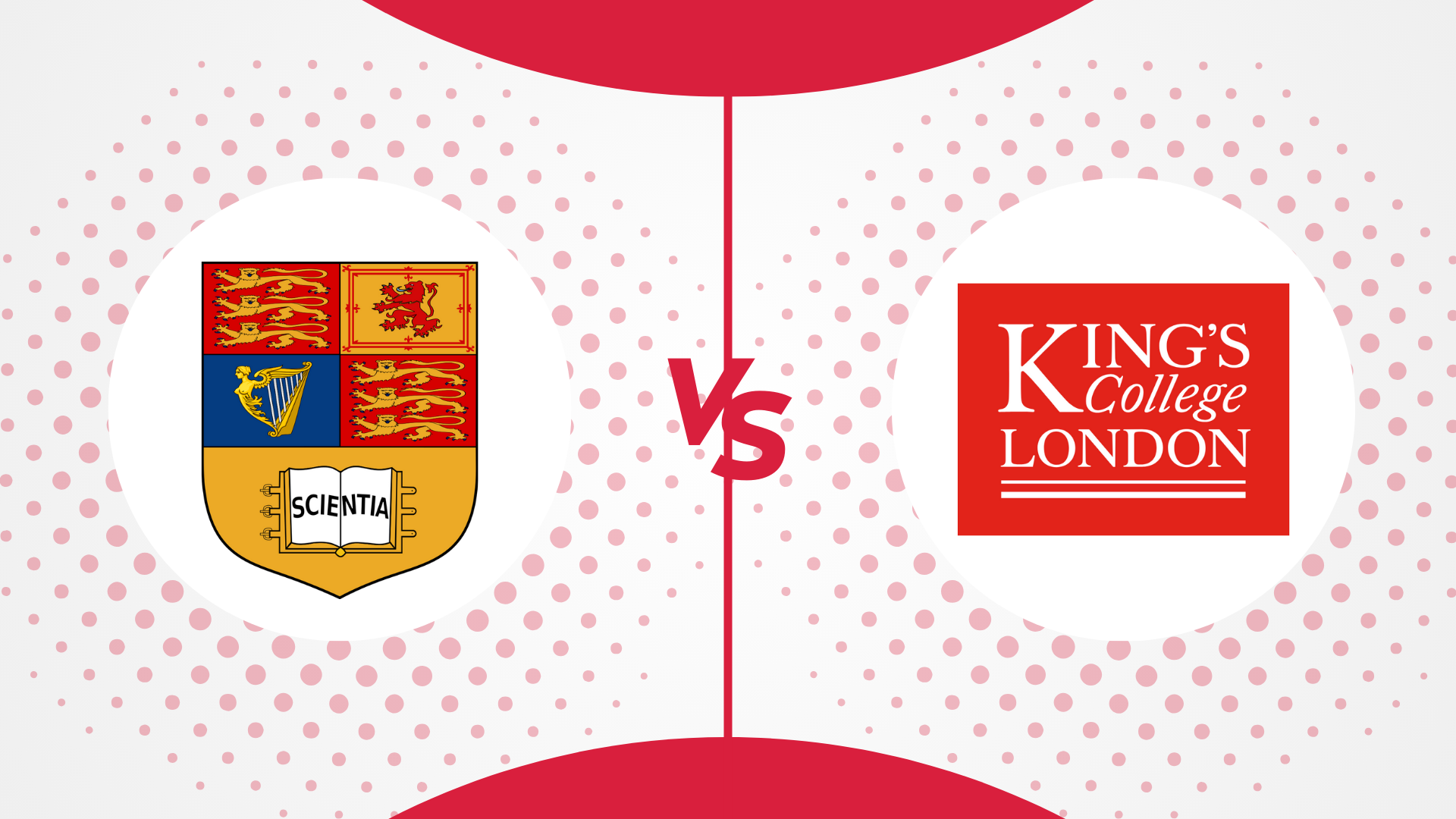
King’s College London vs Imperial College London: How do they Compare [2025]
July 31, 2025 -

London School of Economics vs King’s College: How Do They Compare? [2025]
July 25, 2025 -
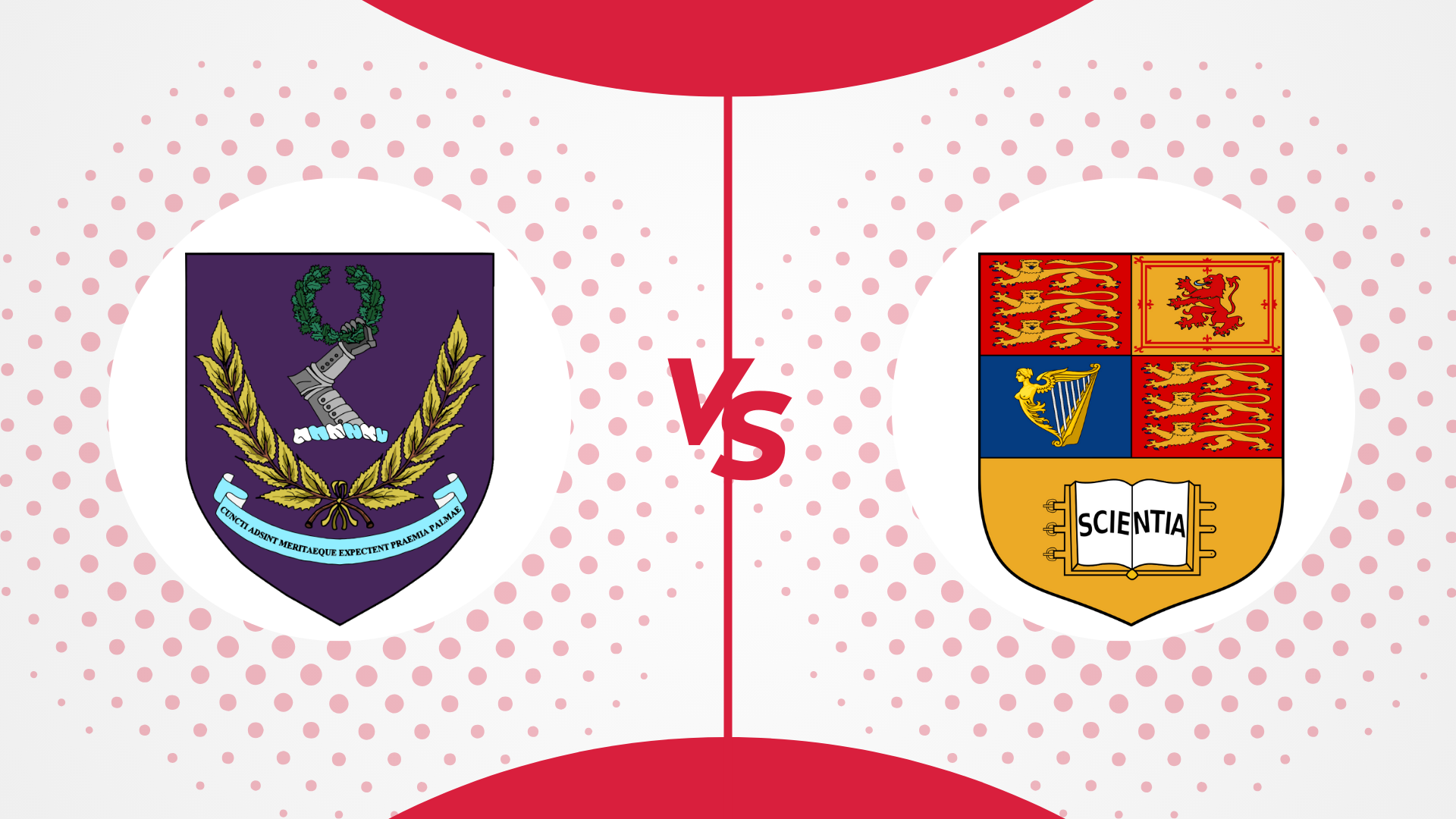
UCL vs Imperial: How Do They Compare? [2025]
July 23, 2025 -

UCL vs LSE: How Do They Compare in 2025?
November 19, 2024 -

Nottingham University vs Nottingham Trent: How Do They Compare? [2025]
November 19, 2024 -
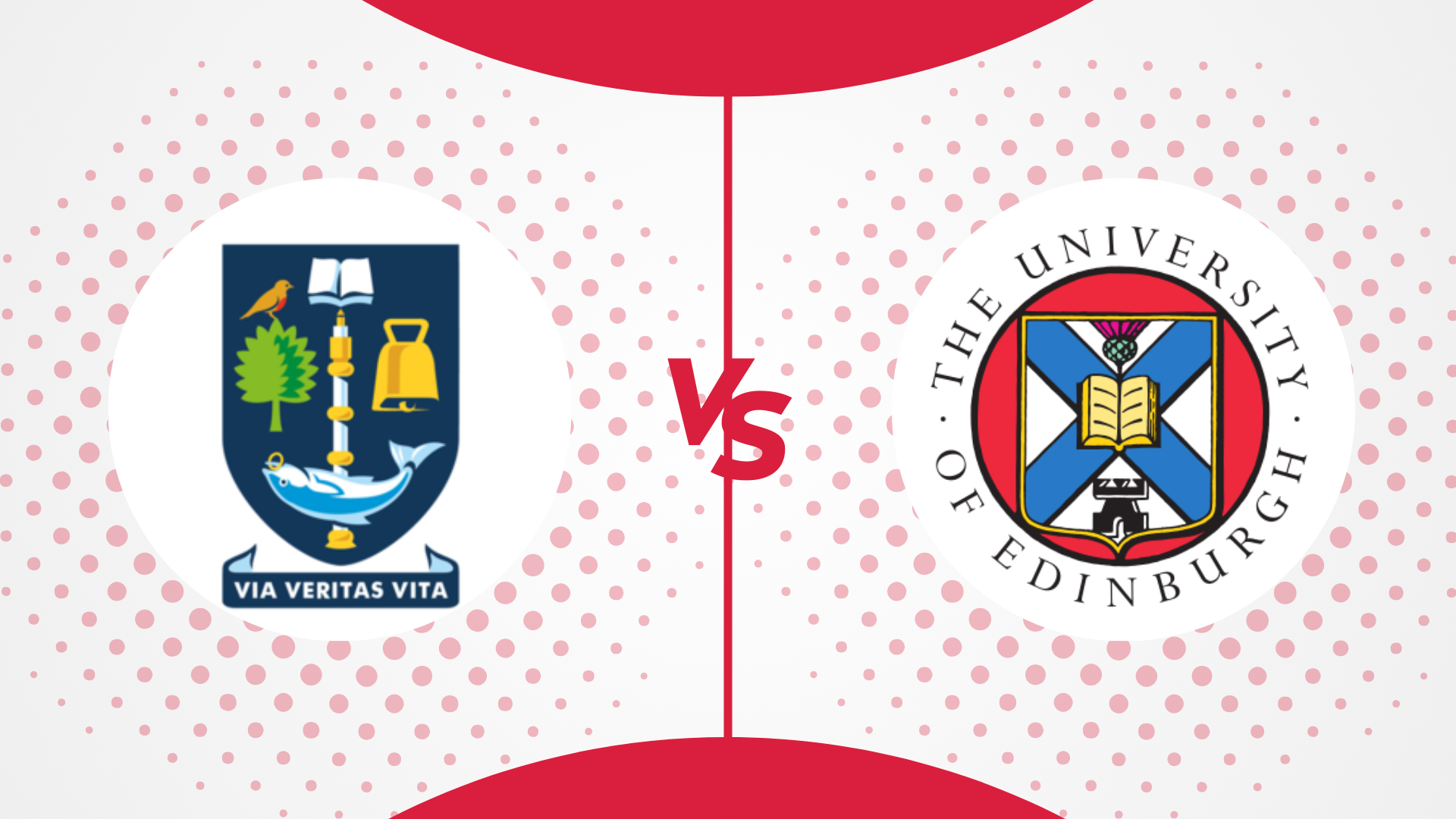
Glasgow University vs University of Edinburgh: How Do They Compare? [2025]
November 19, 2024 -

University of Edinburgh vs King’s College London: How Do They Compare? [2025]
November 7, 2024 -

London School of Economics Vs London Business School: How Do They Compare? [2024]
October 26, 2024 -

LSE vs Oxford: How Do They Compare? [2024]
October 8, 2024 -

Durham vs Warwick: How Do They Compare? [2025]
September 27, 2024


















